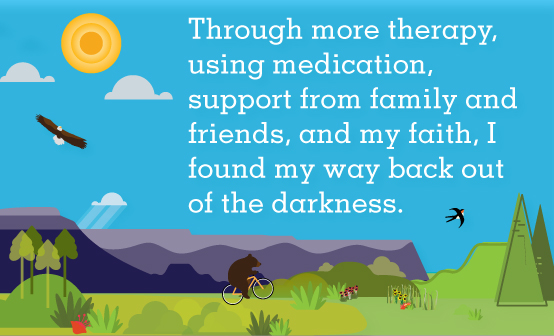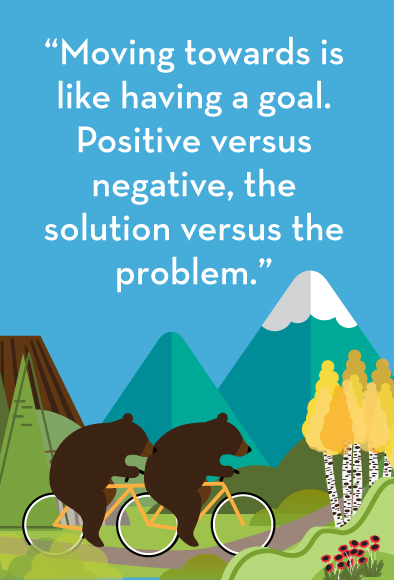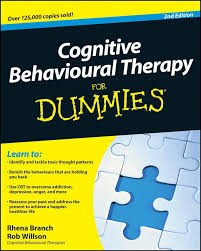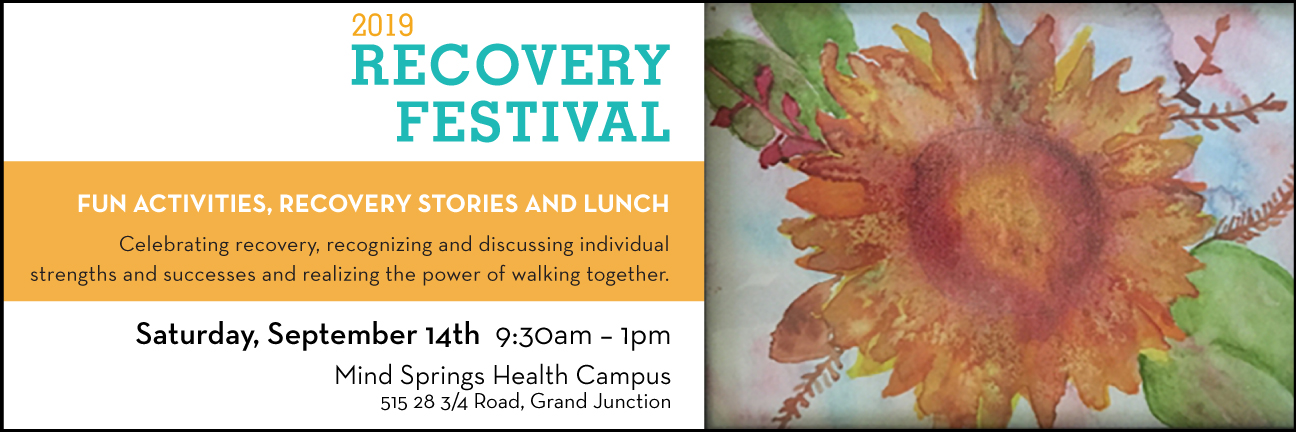Recovery In Action | Summer 2019
Fighting My Way Back to the Light
By S.T.
 I had heard that relapse is often apart of recovery I never imagined that I, however, would relapse. I had survived sexual, emotional, and physical abuse. I made it through major bouts of depression, self-harm, and suicidal thoughts. I grieved many losses including the death of my youngest sister. I made it through many parenting trials of medical issues, autism, and violent outbursts with my sons. I had worked hard to find my worth. Through faith, support, and therapy, I found the light in the darkness and my world became full of light and joy. I was strong. Then, my world was shattered again and I found myself back in the darkness.
I had heard that relapse is often apart of recovery I never imagined that I, however, would relapse. I had survived sexual, emotional, and physical abuse. I made it through major bouts of depression, self-harm, and suicidal thoughts. I grieved many losses including the death of my youngest sister. I made it through many parenting trials of medical issues, autism, and violent outbursts with my sons. I had worked hard to find my worth. Through faith, support, and therapy, I found the light in the darkness and my world became full of light and joy. I was strong. Then, my world was shattered again and I found myself back in the darkness.
Moving Towards
by Jill Davis
Do you remember ‘super balls’? These small, concentrated spheres of rubber zigzagged erratically when they hit something, and catching them was a comedic effort. This is how the emotional dance I engaged in with anxiety and depression looked. This dance, however, didn’t happen right away. Before, it was a chaotic dance, which spun randomly with every bounce.

Affirmation Corner
My thinking is peaceful, calm and centered.
I love and appreciate myself.
I now release anger in positive ways.
I love and approve of myself. I am safe.
I am willing to change patterns in myself.
I easily flow with change.
Affirmations shared from Louise Hay, You Can Heal Your Life.

Book Recommendation
By Noleta Golden
Cognitive Behavioral Therapy For Dummies
By Rhena Branch and Rob Willson
This book offers a detailed overview of CBT or cognitive behavioral therapy, which helps people cope with a variety of disorders and problems. Most of us believe that circumstances and feelings create our thoughts, but CBT says that it’s the other way around – our thoughts lead to our feelings and behaviors. The great thing about CBT is that it gives us power – not always a lot, but some, because we can choose the way we think.
CBT can help with anxiety, including obsessions, phobias, post-traumatic stress, and panic. It also helps with addictions, body-image problems, depression, low self-esteem, and even anger. A person learns to identify what negative feeling they are experiencing, and then look back and identify what thought led to that feeling. Then they can change that thought to a more helpful, rational one. If they do that enough, the new thought will bring about a new, more pleasant feeling.
But it’s not always easy, and sometimes it takes awhile, so don’t give up! The book has many helpful worksheets to guide the person through their journey through therapy. The book gives detailed descriptions of how CBT works with various situations. It introduces
the ABC’s:
- A is the activating event
- B is the belief about the activating event
- C is the consequence
- D is the dispute (or how a person changes their thinking)
- E is the effect (how well it worked)
The ABC’s have helped me with my schizophrenia as I have used them with the voices and false beliefs.
I really liked this book and I highly recommend it to nearly everybody. We all have negative thoughts and what another book I have read calls “misbeliefs,” and we all have painful feelings at times. CBT helps us overcome these things and be more rational in our thoughts, feelings, and behaviors.

Consumers interested in displaying art at the 2019 Recovery Festival arts & crafts show should email Rebecca Edwards at [email protected]
If you would like to make a gift in support of the 2019 Recovery Festival, or if interested in being a local event sponsor, please email [email protected]
Recovery Resources
- Get Hooked Into Local Support with National Alliance on Mental Illness – Western Slope or email at [email protected].
- Colorado Health Partnership has a very informative website. The website is primarily for Medicaid members, but non Medicaid individuals can access a vast amount of information including over thousands of articles on health and mental health issues.
- The Depression and Bipolar Support Alliance website is a great place to start. You can spend days browsing its wellness guides, support resources like Facing Us Clubhouse, a wellness toolbox, mood management tools, and even online support groups. Yes, you can talk to other peers via their website.
- SAMHSA’s National Center for Trauma-Informed Care (NCTIC) is a technical assistance center dedicated to building awareness of trauma-informed care and promoting the implementation of trauma-informed practices in programs and services.
- Recovery website with lots of information www.recoveryhope4all.com.
- Voices4Hope is a place for teenagers and young adults with mental health conditions to find resources and stigma busting information.
- A web site for those who hear voices www.hearingvoicesusa.org
- Colorado Health Partnerships/Achieve solutions. Whether you need help finding services, a life event or want to assess your concerns, you will find this website very helpful.